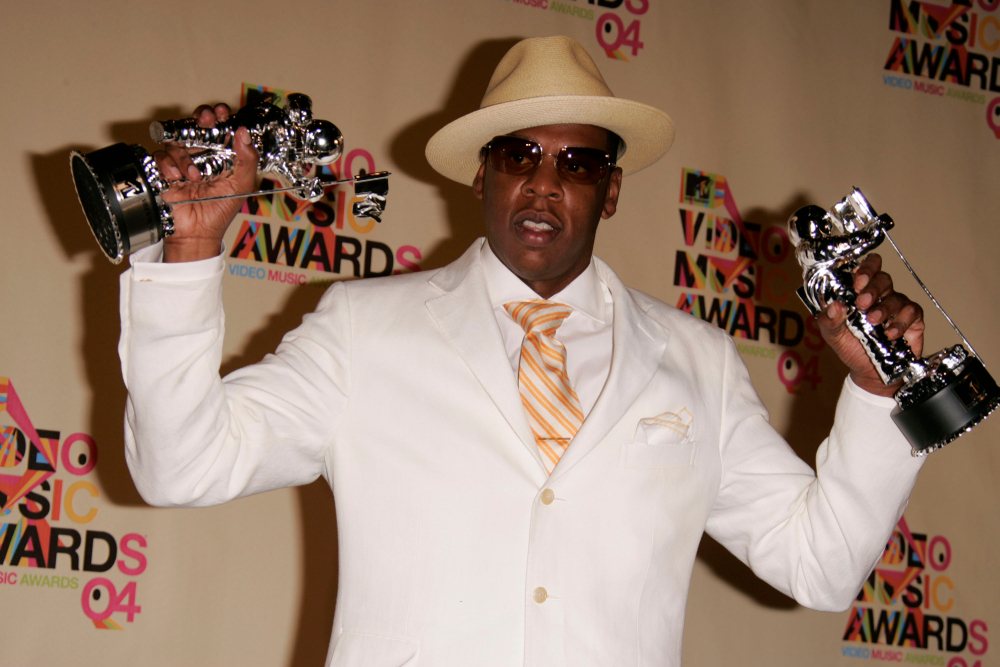A civil lawsuit has been filed against Sean “Diddy” Combs and Jay-Z, who have been accused of raping a 13-year-old girl at an afterparty for the 2000 MTV Video Music Awards, The New York Post reported Tuesday.
The Allegations
A woman, now in her late 30s and identified as Jane Doe, alleges she was raped by Combs, and Jay-Z (né Shawn Carter), both 55, in New York City during the party. The complaint also mentions that while the sexual assault took place, an unnamed female celebrity watched.
The accuser claims that she had been standing outside of Radio City Music Hall trying to get inside the VMAs and walking up to limousines that were dropping guests off at the venue, when she was invited to the after-party by a limousine driver who claimed to work for Combs. The driver allegedly told Jane Doe that the Combs liked younger girls and “fit what Diddy was looking for.”
Upon arriving at the VMA after-party, the plaintiff was asked to sign a non-disclosure agreement (NDA). She also alleges that she was drugged with a beverage. During the party, Doe claimed Combs had a ‘crazed look in his eyes’ when he approached her. Eventually, the plaintiff says that Combs threw her toward a wall, making her fall. After getting up and stumbling, the plaintiff was allegedly grabbed by Combs, who then proceeded to throw her on the bed and sexually assault her. The complaint says that Jay-Z undressed her and also participated in the sexual assault. The plaintiff also alleges that the rappers took turns sexually assaulting her; while one rapper assualted her, the other watched with the unnamed female celebrity.
Jay-Z, who is married to Beyonce, with which he has three children, vehemently denied the claims and said his “only heartbreak is for my family.”
The latest claims against Jay-Z surfaced as part of a broader legal filing implicating Combs in a series of sexual assaults spanning decades. While the details surrounding Jay-Z’s alleged involvement are emerging, the case underscores a disturbing pattern in the entertainment industry: allegations of sexual violence and abuse being leveled against some of the most powerful figures in music. Combs himself has faced multiple lawsuits in recent weeks, with one high-profile claim accusing him of orchestrating violent and coercive sexual encounters, including incidents involving other industry figures.
Combs was arrested in September on charges of racketeering and sex trafficking. More than 120 people have accused Combs of sexual assault. Having been denied bail three times, Combs is currently incarcerated at the Metropolitan Detention Center in Brooklyn while awaiting his May 2025 trial.
A Troubling Pattern in Hip-Hop
For decades, Combs and Jay-Z have stood as titans of hip-hop, shaping the culture and generating billions in revenue. However, their proximity to allegations of abuse raises critical questions about how power, privilege, and celebrity shield individuals from scrutiny and accountability. But they aren’t the only infamous singers in the genre–or closely associated with it–accused of sexual assault.
R. Kelly, the R&B artist with close cultural ties to hip-hop, is currently serving time for racketeering and sex trafficking involving underage girls. The late rapper Tupac Shakur was convicted of first-degree sexual abuse in 1994. In 2017, Def Jam record label co-founder and hip-hop pioneer, Russell Simmons was accused of retiring to the Indonesian island of Bali to escape multiple sexual assault lawsuits.
Why People in Power Feel Emboldened To Commit Sexual Assault
The short answer is that they think they can get away with it. The combination of wealth, influence, and adulation creates a dangerous cocktail that often emboldens powerful individuals to act with impunity. Celebrities like Jay-Z and Diddy operate in insulated environments where gatekeepers, enablers, and fans frequently prioritize the preservation of the star’s image over justice for victims. In many cases, survivors are silenced through intimidation, legal agreements like NDAs, or sheer disbelief from the public. But thankfully, the cultural winds may be beginning to change.
Nonetheless, the bottom line with the entertainment industry is the bottom line. Its focus on revenue generation further exacerbates the problem of sexual assault. Executives, managers, and collaborators often turn a blind eye to misconduct, fearing financial loss or career repercussions if they speak out against a cash cow.
Why Survivors Take Decades to Come Forward
Although allegations are just that until proven true in a court of law, some people discredit plaintiff claims that are filed years or even decades after the alleged assault. What people who don’t believe the stories of accusers fail to realize is that there are many survivors come forward years after the incident.
For starters, especially in the entertainment industry, there is the fear of retaliation. Survivors often fear career sabotage, public humiliation, or even physical harm from their abuser or their powerful network. In addition, there’s the social stigma of victim-blaming and shaming, which unfortunately remain pervasive, especially in high-profile cases involving beloved public figures.
Thanfully, however, legal barriers to filing sexual assault claims have been lifted across the U.S. as restrictive statutes of limitations in cases of sexual assault have been greatly eliminated. This makes it much easier for survivors to file lawsuits years after the trauma was inflicted.
There are other reasons why survivors may take a long time to come forward. The psychological trauma of being sexually abused can take years to cope with. The processing is very difficult, complex and personal. Thus, it may take years for a survivor to feel strongly enough to speak out.
And circling back to the rap and hip-hop community, there is a toxic masculinity that celebrates dominance. Survivors, including women of color, face additional hurdles in being believed or supported in this environment.
A Cultural Shift Towards Accountability
The recent wave of allegations against Jay-Z and Diddy—coupled with the ongoing legal battles of other industry figures—signals a potential turning point. Survivors are increasingly emboldened to share their stories, bolstered by a growing societal awareness of systemic abuse and the importance of listening to survivors.
Legislative changes extending the statute of limitations for sexual abuse cases, as seen in New York’s Adult Survivors Act, are also enabling survivors to seek justice, even decades later.
However, accountability requires more than just exposing abusers. It demands systemic change within the industry to dismantle the power structures that allow abuse to flourish. This includes holding executives and enablers accountable, providing better support systems for survivors, and fostering a culture of respect and consent.




